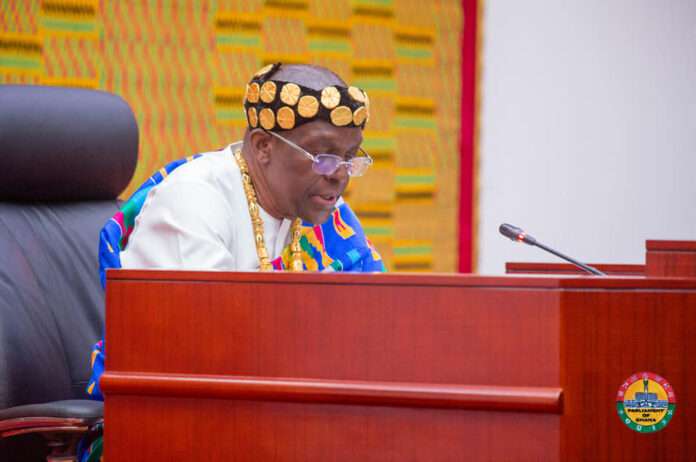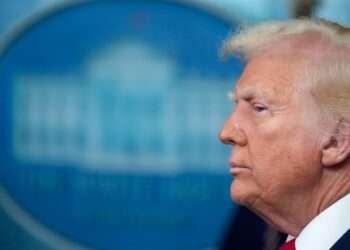Parliament is the cornerstone of any democratic system, responsible for lawmaking, oversight, and representing the electorate.
To effectively fulfill these responsibilities, Parliament needs to set and follow the right precedents.
Precedents are established practices, traditions, or rulings that guide the conduct of legislative duties, ensuring consistency, accountability, and credibility.
Accordingly, Prof. Ransford Gyampo, a political scientist, has expressed his disappointment that Speaker of Parliament Alban S.K. Bagbin has chosen to follow the precedent set by his predecessor, Hon. Michael Oquaye in declaring vacant seats of MPs that have ‘crossed the carpet’.
Prof. Gyampo explained that Article 97(1)(g) and (h) of the Constitution, when interpreted correctly, stipulates that a Member of Parliament must vacate their seat if they switch political parties during their term or attempt to continue as an independent MP after being elected on a party ticket.
This provision, he indicated, aims to prevent party-switching or political defection within the same parliamentary term.
“The current Second Deputy Speaker, an independent MP, has filed to contest the 2024 elections on the NPP ticket. In contrast, Cynthia Morrison and K. Asante, NPP MPs, have filed to run as independent candidates in 2024. An NDC MP has also filed to be an independent. These developments raised concerns about the NPP’s thin majority in the remainder of the 8th Parliament.
“Some point to Speaker Oquaye’s ruling in the 7th Parliament when the current Second Deputy Speaker, then the Fomena NPP MP, filed as an independent. The Speaker ruled that the Fomena MP had vacated his seat. At the time, those of us who know Ghana’s political history and appreciate what led to the laws against cross-carpeting argued that Speaker Oquaye’s ruling was incorrect. The NPP should have stood on principle and rejected the ruling, but instead, they either followed it or orchestrated the situation”.
Prof. Ransford Gyampo
Prof. Gyampo added that an MP elected as an independent candidate must also vacate their seat if they join a political party during their term.
He stated that this rule ensures that an independent MP does not compromise their independent mandate by aligning with a party after the election.

The Political Scientist explained that this law was included in the 1969, 1979, and 1992 Constitutions to prohibit “carpet crossing” within the same parliamentary term.
He stressed that the law does not address an MP’s intentions for the next Parliament.
According to Prof. Gyampo, understanding Ghana’s political history is essential to grasp the rationale behind this law, as it reflects the spirit in which it was originally enacted.
He explained that the law against cross-carpeting was a reaction to past events where many opposition MPs joined the CPP to avoid arrest. “Its purpose is to maintain political stability and prevent opportunistic or intimidated shifting of allegiances by MPs during their term”.
Law Preserves Integrity of Electoral Mandate
Furthermore, Prof. Ransford Gyampo explained that the law aims to preserve the integrity of the electoral mandate by ensuring MPs stay true to the political platform or independent status they were elected under.
This helps maintain party stability and consistent parliamentary representation.
He noted that the law reflects Ghana’s experience during the First Republic when the government weakened the opposition by strategically enticing MPs to switch sides.
As such, Prof. Gyampo emphasized that the law has nothing to do with an MP’s intentions for a future parliament.

According to him, the literal interpretation given by Oquaye and Bagbin is incorrect.
“In 2008, Joe Osei Wusu, Seth Adjei Baah, and Ofori Kuragu got to parliament as Independent Candidates, though they were NPP people. In 2012, when the NPP decided to allow them to contest on its ticket, they were not thrown out of parliament and their seats weren’t declared vacant. Instead, the NPP waited till around September before holding primaries for them.
“It must be pointed out that, the idea of declaring seats vacant at a time when fresh elections cannot be immediately held to replace occupants, simply because of a future intent of a sitting MP, unnecessarily stifles representation as it denies constituents of their voice in parliament”.
Prof. Ransford Gyampo
Prof. Gyampo stated that questions regarding the vacation of seats by MPs can only be decided by the high courts, not by the Speaker of Parliament or political parties. This is following Article 99 of the 1992 Constitution.
He argued that Speakers Oquaye and Bagbin misinterpreted the law, failing to consider its original intent.
Furthermore, he noted that it is beyond their authority to declare seats vacant. We should all be tired of political gamesmanship that distorts our history and our laws.
Prof. Gyampo emphasized that sacrificing the right course of action for partisan gain today sets harmful precedents that could have negative consequences in the future.
He noted that when the NPP benefited from a similar situation in the past, they accepted it, but now that they are affected, they are protesting.
This, he argued, is the result of engaging in unprincipled politics.
READ ALSO: Israel Says Hamas Chief Killed




















